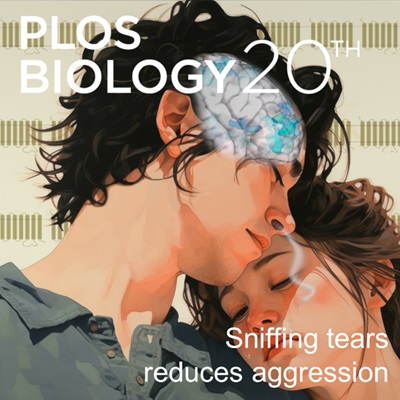神经发育过程中的小胶质细胞食人行为会导致细胞坏死。
IF 9.8
1区 生物学
Q1 Agricultural and Biological Sciences
引用次数: 0
摘要
小胶质细胞清除垂死的神经元对健康的神经发育至关重要,但小胶质细胞还吃什么呢?PLOS Biology》上的一项新研究表明,小胶质细胞不仅吃神经元,而且还互相吃,这种 "小胶质细胞食人 "会导致细胞坏死。本文章由计算机程序翻译,如有差异,请以英文原文为准。
Microglia cannibalism during neurodevelopment results in necroptotic cell death.
Clearance of dying neurons by microglia is critical to healthy neurodevelopment, but what else do microglia eat? A new study in PLOS Biology demonstrates that microglia not only eat neurons but each other, and that this "microglia cannibalism" causes necroptotic cell death.
求助全文
通过发布文献求助,成功后即可免费获取论文全文。
去求助
来源期刊

PLoS Biology
BIOCHEMISTRY & MOLECULAR BIOLOGY-BIOLOGY
CiteScore
15.40
自引率
2.00%
发文量
359
审稿时长
3-8 weeks
期刊介绍:
PLOS Biology is the flagship journal of the Public Library of Science (PLOS) and focuses on publishing groundbreaking and relevant research in all areas of biological science. The journal features works at various scales, ranging from molecules to ecosystems, and also encourages interdisciplinary studies. PLOS Biology publishes articles that demonstrate exceptional significance, originality, and relevance, with a high standard of scientific rigor in methodology, reporting, and conclusions.
The journal aims to advance science and serve the research community by transforming research communication to align with the research process. It offers evolving article types and policies that empower authors to share the complete story behind their scientific findings with a diverse global audience of researchers, educators, policymakers, patient advocacy groups, and the general public.
PLOS Biology, along with other PLOS journals, is widely indexed by major services such as Crossref, Dimensions, DOAJ, Google Scholar, PubMed, PubMed Central, Scopus, and Web of Science. Additionally, PLOS Biology is indexed by various other services including AGRICOLA, Biological Abstracts, BIOSYS Previews, CABI CAB Abstracts, CABI Global Health, CAPES, CAS, CNKI, Embase, Journal Guide, MEDLINE, and Zoological Record, ensuring that the research content is easily accessible and discoverable by a wide range of audiences.
 求助内容:
求助内容: 应助结果提醒方式:
应助结果提醒方式:


